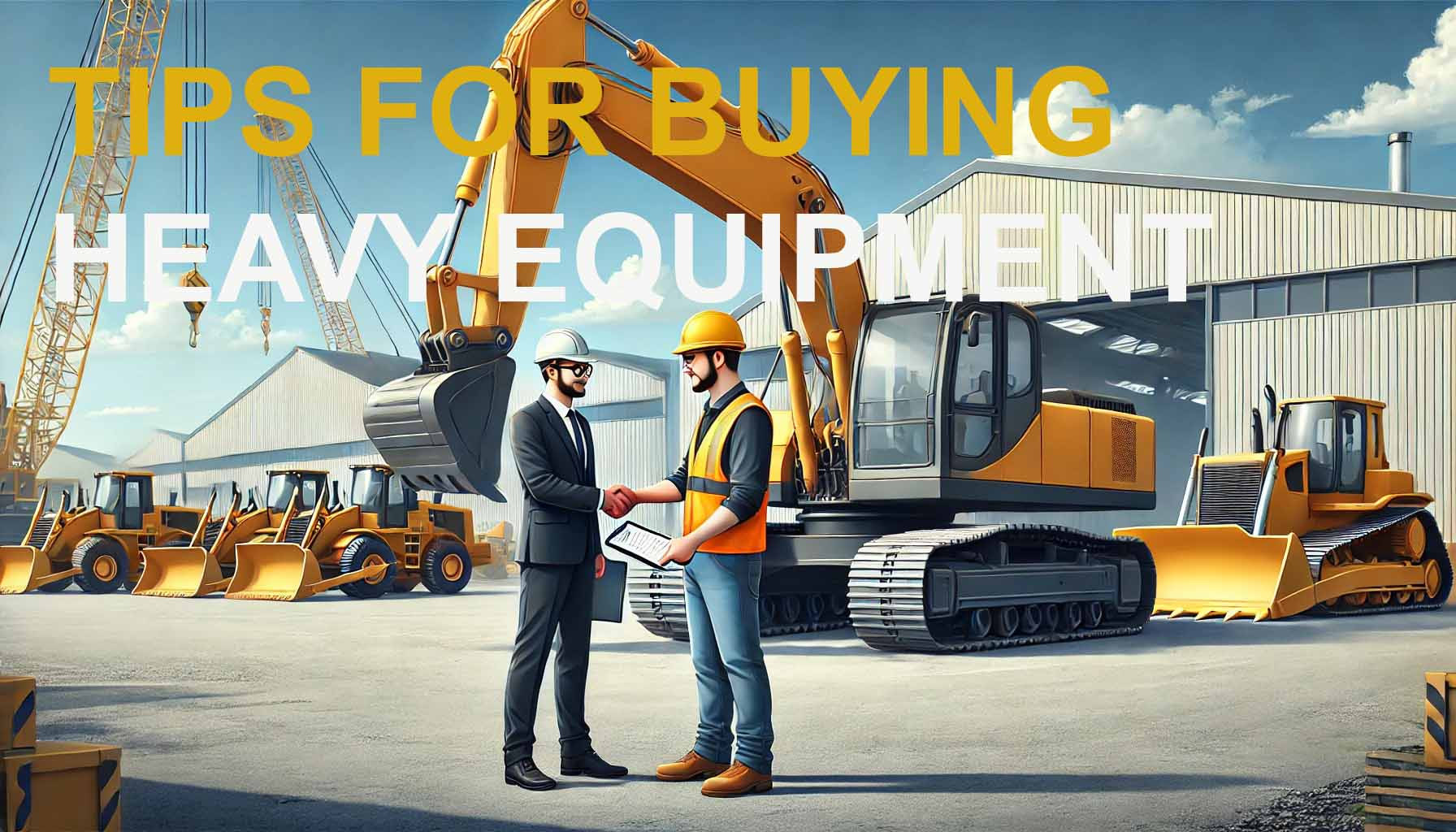Enthusiast Corner
Tips on Buying Heavy Equipment
Buying heavy equipment is a significant investment, whether for construction, agriculture, mining, or other industrial applications. Making the right choice ensures efficiency, longevity, and return on investment. Here are some critical factors to consider when purchasing heavy equipment.
1. Define Your Needs
Before browsing options, clearly outline your specific needs. Consider the type of work the equipment will perform, the environment in which it will operate, and any unique challenges. Identifying these factors will help narrow down the choices to the most suitable machine.
2. New vs. Used Equipment
Deciding between new and used equipment is a crucial consideration. While new machines offer the latest technology, warranties, and reliability, they come at a higher price. Used equipment can be a cost-effective alternative but requires careful inspection to avoid costly repairs.
3. Machine Condition and Maintenance History
If purchasing used equipment, always check its condition and maintenance records. Look for signs of wear and tear, inspect key components like the engine, hydraulics, and undercarriage, and request service logs. A well-maintained machine will have a longer lifespan and lower maintenance costs.
4. Brand and Dealer Reputation
Opt for reputable brands known for durability and performance. Additionally, choose a dealer with a solid reputation for customer service, support, and availability of spare parts. Reliable after-sales support can significantly impact your equipment’s uptime and efficiency.
5. Operational Efficiency and Features
Modern heavy equipment comes with various features to enhance productivity, fuel efficiency, and safety. Evaluate aspects such as automated controls, telematics, fuel consumption, and ease of operation. Machines with advanced technology may have a higher upfront cost but can save money in the long run.
6. Cost of Ownership
Beyond the initial purchase price, consider the total cost of ownership. Factor in fuel consumption, maintenance, repairs, insurance, and resale value. A cheaper machine may have higher operational costs, making a more expensive but efficient model a better choice.
7. Inspection and Testing
Before finalizing the purchase, conduct a thorough inspection and, if possible, test the machine. Check for leaks, unusual noises, and smooth operation. Testing ensures that the equipment meets your requirements and functions properly.
8. Warranty and Financing Options
Review warranty coverage and financing options available. A strong warranty can protect against unexpected issues, while flexible financing can make the investment more manageable. Compare different financing plans to find the best fit for your budget.
9. Compliance with Regulations
Ensure the equipment meets local and industry-specific regulations regarding emissions, safety, and operational standards. Non-compliant machinery could lead to fines or operational restrictions.
10. Resale Value and Future Upgrades
Consider the resale value and potential for upgrades. Equipment from well-known brands tends to hold value better. Additionally, check if the machine can be upgraded or adapted for future needs.
Final Thoughts
Buying heavy equipment is a complex decision that requires careful research and planning. By assessing your needs, evaluating options, and considering long-term costs, you can make a smart investment that enhances productivity and profitability.

